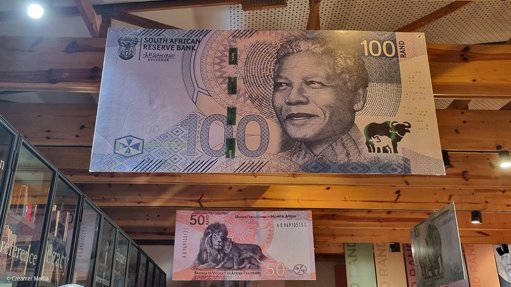Virus stories
I did promise not to write about State-owned power utility Eskom and the virus. I can leave Eskom alone but, as to the virus, it is a bit like saying to Samuel Pepys, who kept a diary in 1665, at the time of the great plague of London: “Hey, stop your scribbling, man!”
Like Pepys, I keep a diary but, unlike Pepys, I doubt it will survive me. The great plague of London was not in fact confined to London at all but affected most of England. What Pepys’s diaries record in time of plague is the interestingness of our daily lives: stories, abundant small pleasures and friendships. The day after a trip to London, Pepys was working happily away at his office. In the evening, he went for a medicinal drink with a companion. The day after that, he was at lunch with three friends, “and very merry we were”.
We can see that Bheki Cele had little to do with the great plague: Pepys and his buds would hardly have got merry at all. Even better, the great plague of 1665 saw tobacco smoke widely advocated as a defence against ‘bad air’. At the height of the plague, smoking a pipe at breakfast was actually made compulsory for the schoolboys at Eton College, in London (it may still be so, but the contents are perhaps not the same). Cele would have nailed this in a shot.
Not a lot was done about the great plague to stop it. Spices such as pepper, cinnamon, cloves, nutmeg and mace were wrapped in a ball of bees wax and held close to the nose. Some claim that this is the ‘pocket full of posies’ which are referred to in the nursery rhyme, Ring a ring a rosies’, but this is not so. Anna Faherty, a writer in the Wellcome Collection, writes about the great plague: In the early summer of 1664, as deaths in Amsterdam rose, ships from all Dutch ports were held outside London for 40 days, a period known as ‘quarantine’, from the Italian word for 40; London’s approach to plague control was based on a concept first developed in Italy.
Businesses that involved travel or gatherings of people had to stop operating. Ale and coffee houses closed down, as did markets, theatres. Street sellers and hawkers were prohibited from selling any goods and all trade in second-hand clothes was banned. Even citizens free to move around the deserted city changed their behaviour. People walked in the middle of the street to avoid contact with others, only entered shops if no other customers were present, and preferred not to handle money. Sounds familiar?
So, here we are. But there are laughs in all this. My friend Klippie and his sidekick, Jansen, were engaged in a wind turbine project in the Karoo about 100 km from Matjiesfontein. They were working for an Italian company. When the lockdown hit, they were well prepared: cases of beer, Olaf brandy and cases of Coke. They had five cartons of cigarettes. They had access to a nearby farm, hunting season was soon. The labour had all gone home, save two housekeepers. What’s not to like? Then their employers arrived without warning in two trucks. They packed up everything and told Klippie and Jansen to go back to Cape Town. When the two got there, their personal effects were delivered but no Olaf brandy and ... no cigarettes. It’s the first time the two have been sober in years. And have stopped smoking.
Then my friend Joel Bheki Zwane, of Ladysmith, tells me it was formerly difficult if an old person died – nobody wanted to help with the body or dig the grave or the hundred things that happen when death occurs. Old people seldom have local relatives. But now, he says, there is no shortage of assistance. This is because, at every funeral, the drinking of umqombothi (home-made Zulu beer) is traditional culture. So, people come to help and stay to drink, lockdown or not. Way to go.
Article Enquiry
Email Article
Save Article
Feedback
To advertise email advertising@creamermedia.co.za or click here
Comments
Press Office
Announcements
What's On
Subscribe to improve your user experience...
Option 1 (equivalent of R125 a month):
Receive a weekly copy of Creamer Media's Engineering News & Mining Weekly magazine
(print copy for those in South Africa and e-magazine for those outside of South Africa)
Receive daily email newsletters
Access to full search results
Access archive of magazine back copies
Access to Projects in Progress
Access to ONE Research Report of your choice in PDF format
Option 2 (equivalent of R375 a month):
All benefits from Option 1
PLUS
Access to Creamer Media's Research Channel Africa for ALL Research Reports, in PDF format, on various industrial and mining sectors
including Electricity; Water; Energy Transition; Hydrogen; Roads, Rail and Ports; Coal; Gold; Platinum; Battery Metals; etc.
Already a subscriber?
Forgotten your password?
Receive weekly copy of Creamer Media's Engineering News & Mining Weekly magazine (print copy for those in South Africa and e-magazine for those outside of South Africa)
➕
Recieve daily email newsletters
➕
Access to full search results
➕
Access archive of magazine back copies
➕
Access to Projects in Progress
➕
Access to ONE Research Report of your choice in PDF format
RESEARCH CHANNEL AFRICA
R4500 (equivalent of R375 a month)
SUBSCRIBEAll benefits from Option 1
➕
Access to Creamer Media's Research Channel Africa for ALL Research Reports on various industrial and mining sectors, in PDF format, including on:
Electricity
➕
Water
➕
Energy Transition
➕
Hydrogen
➕
Roads, Rail and Ports
➕
Coal
➕
Gold
➕
Platinum
➕
Battery Metals
➕
etc.
Receive all benefits from Option 1 or Option 2 delivered to numerous people at your company
➕
Multiple User names and Passwords for simultaneous log-ins
➕
Intranet integration access to all in your organisation


















